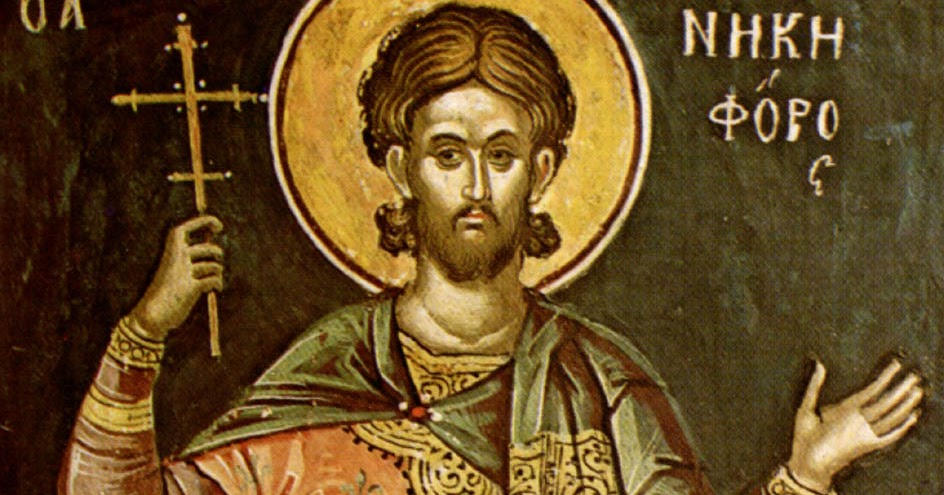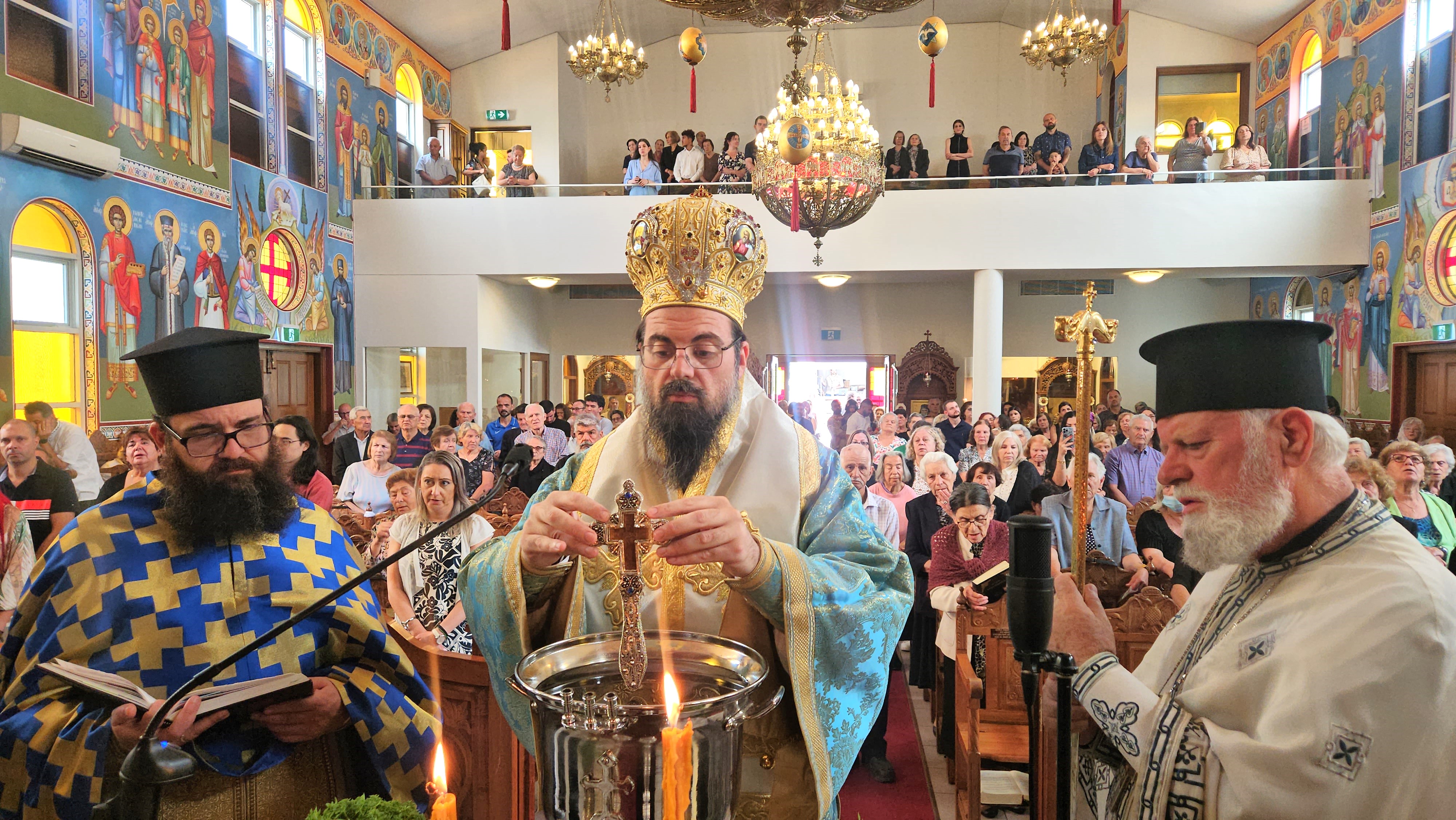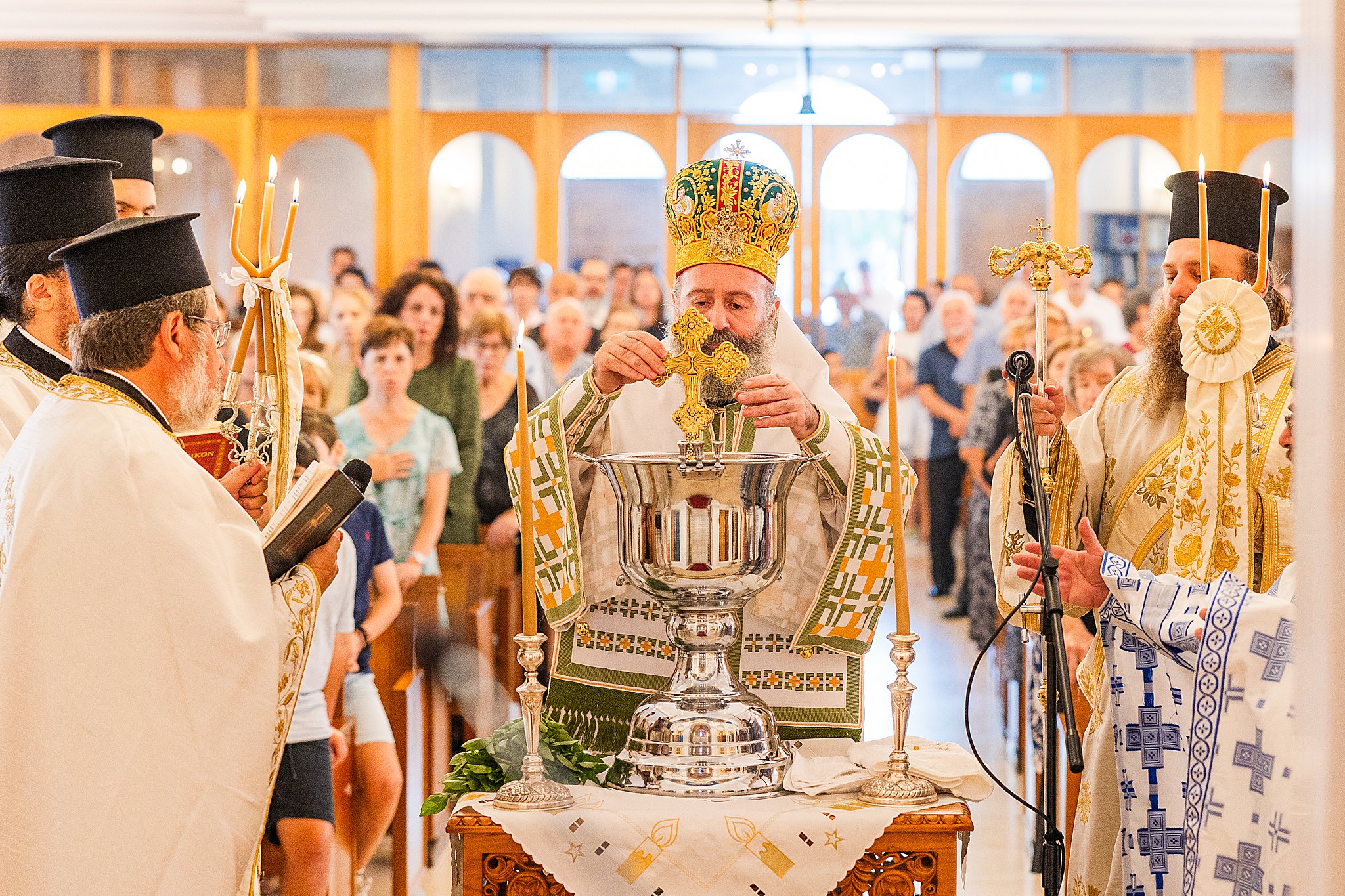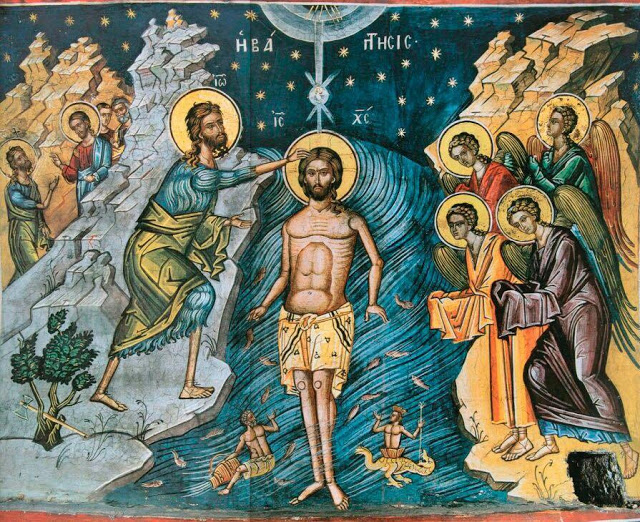The Holy Martyr Nicephorus (9 February)


The biography of this martyr clearly demonstrates how God rejects pride and crowns humility and love with glory. There lived in Antioch two close friends, the learned priest Sapricius and the simple layman Nicephorus. Somehow their friendship turned into a terrible hatred for each other. The God-fearing Nicephorus attempted on many occasions to make peace with the priest. However, at no time did Sapricius desire to be reconciled. When the persecution of Christians began, the presbyter Sapricius was condemned to death and brought to the place of execution. The sorrowful Nicephorus followed after Sapricius, beseeching him along the way to forgive him before his death, that they might depart in peace.
“I beseech you, O martyr of Christ,” said Nicephorus, “forgive me if I have sinned against you!” Sapricius did not even want to look at his opponent, but quietly and arrogantly walked toward his death. Upon seeing the hardness of the priest’s heart, God did not want to accept the sacrifice of his martyrdom and crown him with a wreath, and instead He mysteriously withheld His grace. At the last moment, Sapricius denied Christ and declared before the executioners that he would bow down before the idols. So it is with blind hatred! Nicephorus implored Sapricius not to deny Christ saying: “O my beloved brother, do not do that; do not deny our Lord Jesus Christ; do not forfeit the heavenly wreath!” But all was in vain. Sapricius remained adamant. Then Nicephorus cried out to the executioners: “I too am a Christian; behead me in place of Sapricius!” The executioners informed the judge of this, and the judge ordered the release of Sapricius and beheaded Nicephorus in his place. Nicephorus joyfully lowered his head on the block and was beheaded. Thus, he was made worthy of the Kingdom and was crowned with the immortal wreath of glory. This occurred in the year 260 A.D., during the reign of Gallienus.
This Martyr, who was from Antioch in Syria, contested during the reign of Gallienus, about the year 260. Through the working of the evil one, his friendship with a certain Christian priest named Sapricius was turned to bitter hatred. Nicephoros, repenting of his enmity, tried both through intermediaries and in person to be reconciled with Sapricius, but to no avail. Later, when the persecution broke out under Valerian and Gallienus, Sapricius was seized as a Christian. When Saint Nicephoros learned that Sapricius had been arrested by the pagans and was enduring torments for Christ, he sent intermediaries to Sapricius, begging his forgiveness; but Sapricius would not forgive him. Later, as Sapricius was being taken to beheading, Nicephoros, hoping that Sapricius, at his end, in such a holy hour, would at last forgive him, met him on the way, fell before him, and fervently asked his forgiveness; but Sapricius forgave him not. Wherefore, though Sapricius had passed through many sufferings, and the crown of martyrdom was now awaiting him, because he disdained the chief commandments of love and forgiveness, the grace of God, which had been strengthening him in his torments, departed from him, and he told his executioners he would sacrifice. Nicephoros immediately confessed Christ before them, and being himself beheaded, took the crown that Sapricius had cast away.
Should the Apodosis of the Feast of the Meeting in the Temple fall on this day the service to Saint Nicephoros is chanted on the 8th.
Regarding Saint Nikephoros of Antioch, Saint Nikolai Velimirovich writes: “The biography of this martyr Nikephoros clearly demonstrates how God rejects pride and crowns humility and love with glory.”
The Holy Martyr Nikephoros lived in the city of Syrian Antioch. In this city lived also the presbyter Saprikios, with whom Nikephoros was very friendly, so that they were considered as brothers. They quarreled because of some disagreement, and their former love changed into enmity and hate.
After a certain time Nikephoros came to his senses, repented of his sin and more than once asked Saprikios, through mutual friends, to forgive him. Saprikios, however, did not wish to forgive him. Nikephoros then went to his former friend and fervently asked forgiveness, but Saprikios was adamant.
At this time the emperors Valerian (253-259) and Gallius (260-268) began to persecute Christians, and one of the first brought before the court was the priest Saprikios. He firmly confessed himself a Christian, underwent tortures for his faith and was condemned to death by beheading with a sword. As they led Saprikios to execution, Nikephoros tearfully implored his forgiveness saying, “O Martyr of Christ, forgive me if I have sinned against you in any way.”
The priest Saprikios remained stubborn, and even as he approached death he refused to forgive his fellow Christian. Seeing the hardness of his heart, the Lord withdrew His blessing from Saprikios, and would not let him receive the crown of martyrdom. At the last moment, he suddenly became afraid of death and agreed to offer sacrifice to idols. In vain did Nikephoros urge Saprikios not to lose his reward through apostasy, since he already stood on the threshold of the heavenly Kingdom.
Nikephoros then said to the executioner, “I am a Christian, and I believe in our Lord Jesus Christ. Execute me in place of Saprikios.” The executioners reported this to the governor. He decided to free Saprikios, and to behead Nikephoros in his place. Thus did Saintt Nikephoros inherit the Kingdom and receive a martyr’s crown.
This occurred in the year 260 A.D. during the reign of Gallius. Nikephoros, whose name bespeaks a “victory bearer”, won a double triumph over the passions and impiety.
This occurred in the year 260 A.D. during the reign of Gallius. Nikephoros, whose name bespeaks a “victory bearer”, won a double triumph over the passions and impiety.
Profuse are the passages of the Old and New Testaments urging us to love one another according to God, even as He who is mercifully most compassionate ofttimes enjoins upon us. The history of Saint Nikephoros teaches us that even if we should give away all our wealth as alms and surrender up all our bodily members to fire and wild beasts, even for the sake of piety, and endure ten thousand other torments, the sacrifice of one who remembers wrongs would not be accepted by Christ. By remembrance of wrongs, we mean those who bear resentment or harbor rancor. Saint John of the Ladder speaks of this vice, saying:
“Remembrance of wrongs is the consummation of anger, the keeper of sins, hatred of righteousness, ruin of virtues, poison of the soul, worm of the mind, shame of prayer, cessation of supplication, estrangement of love, a nail stuck in the soul, pleasureless feeling cherished in the sweetness of bitterness, continuous sin, unsleeping transgression, hourly malice” (Ladder of Divine Ascent, Step 9:2).
For those who have difficulty with forgetting past injuries and offenses, hearken to St. John’s further advice: “Let it be put to shame by the Prayer of Jesus which cannot be said with it” (Step 9:10). But, “When, after much struggling, you are still unable to extract this thorn, you should apologize to your enemy, even if only in word. Then perhaps you may be ashamed of your long-standing insincerity toward him, and, as your conscience stings you like fire, you may feel perfect love toward him” (Step 9:11). And, “You will know that you have completely freed yourself of this rot, not when you pray for the person who has offended you, nor when you exchange presents with him, nor when you invite him to your table, but only when, on hearing that he has fallen into spiritual or bodily misfortune, you suffer and weep for him as yourself” (Step 9:12).
Apolytikion in the Fourth Tone
Thy Martyr Nikephoros, O Lord, in his courageous contest for Thee received the prize of the crowns of incorruption and life from Thee, our immortal God. For since he possessed Thy strength, he cast down the tyrants and wholly destroyed the demons’ strengthless presumption. O Christ God, by his prayers, save our souls, since Thou art merciful.
Another Apolytikion in the First Tone
Love for the Creator enlightened thy soul, enabling thee to fulfill the law of grace, O Nikephoros. Thou didst love thy neighbor as thyself, win the contest, and destroy the serpent. Wherefore ever preserve us in peace.
Kontakion in the First Tone
Bound fast with chains of love, thou didst mightily sunder the wickedness of hatred with manifest courage, and hence, O Nikephoros, when the sword had cut off thy head, thou wast shown to be a godly Martyr of Jesus, our Incarnate Saviour; pray Him for us who honor thy glorious memory.
Source: Goarch.org / johnsanidopoulos.com





